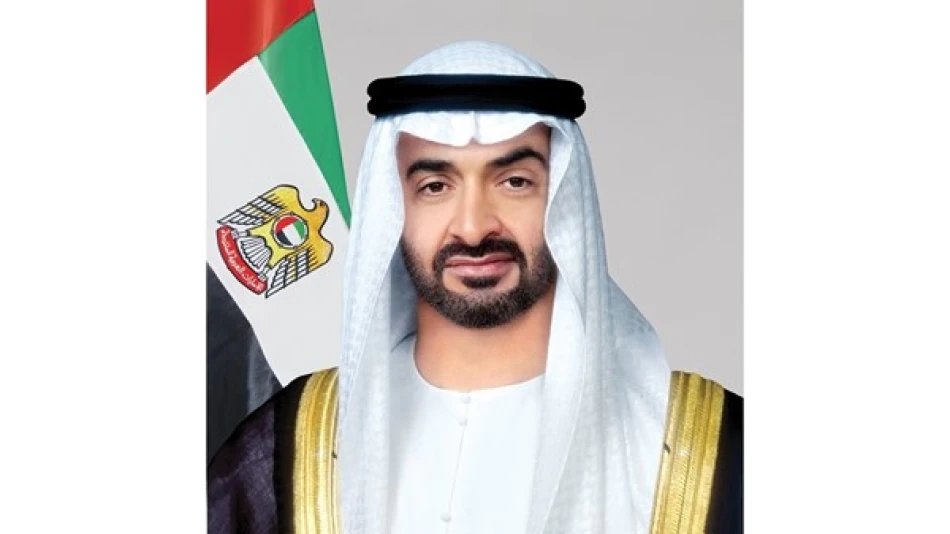
United Arab Emirates President Embarks on Official Visit to Serbia, Strengthening Diplomatic Ties
UAE President Sheikh Mohamed bin Zayed Arrives in Serbia for Strategic Partnership Talks
UAE President Sheikh Mohamed bin Zayed Al Nahyan has arrived in Belgrade for a working visit to Serbia, accompanied by a high-level delegation that signals the Emirates' growing focus on European partnerships amid shifting global economic dynamics. The visit, which includes key figures from the UAE's strategic, technological, and investment sectors, underscores Abu Dhabi's push to diversify its diplomatic and economic relationships beyond traditional Western allies.
High-Stakes Diplomatic Mission
Serbian President Aleksandar Vučić personally welcomed Sheikh Mohamed and his delegation at Belgrade's Nikola Tesla Airport, a protocol gesture that reflects the strategic importance both nations place on this engagement. The UAE leader's entourage reads like a who's who of Emirati power brokers, including Sheikh Hamdan bin Mohamed bin Zayed Al Nahyan, Deputy Chairman of the Presidential Court for Special Affairs, and Dr. Sultan Al Jaber, Minister of Industry and Advanced Technology.
The presence of Mohamed Alabbar, Chairman of Eagle Hills, in the delegation particularly signals that this visit will likely yield concrete investment announcements. Eagle Hills has been the UAE's primary vehicle for large-scale real estate and infrastructure projects across emerging markets, with successful developments in Jordan, Morocco, and other strategic locations.
Serbia's Strategic Appeal for Gulf Capital
Serbia represents an attractive proposition for UAE investors seeking European market access without the regulatory complexities of EU membership. The Balkan nation offers relatively low labor costs, improving infrastructure, and a government eager to attract foreign investment as it navigates between European integration aspirations and maintaining ties with Russia and China.
For the UAE, Serbia provides a potential gateway to the broader Balkans region and Central Europe, markets that have received less attention from Gulf sovereign wealth funds compared to Western Europe or Asia. This aligns with the Emirates' strategy of identifying undervalued markets with strong growth potential.
Timing Reflects Geopolitical Realignment
The visit comes at a moment when traditional European powers are reassessing their relationships with Gulf states, particularly following energy security concerns highlighted by the Ukraine conflict. European nations are increasingly viewing the UAE and other Gulf states as crucial partners for energy diversification and investment capital.
Serbia's non-aligned stance in current geopolitical tensions makes it an ideal partner for the UAE, which has maintained its own balanced approach to international relations. Both countries have demonstrated pragmatic foreign policies that prioritize economic development over ideological alignment.
Expected Outcomes and Investment Potential
The composition of the UAE delegation suggests potential agreements spanning technology transfer, renewable energy projects, and large-scale infrastructure development. The inclusion of strategic affairs advisors and the Secretary-General of the National Security Council indicates discussions will extend beyond commercial arrangements to encompass broader strategic cooperation.
For international investors, UAE-Serbia partnerships could signal emerging opportunities in Balkan markets, particularly in sectors where Emirati expertise has proven successful elsewhere: renewable energy, smart city development, and logistics infrastructure. The UAE's track record of completing announced projects gives weight to any commitments likely to emerge from this visit.
Most Viewed News

 Layla Al Mansoori
Layla Al Mansoori






